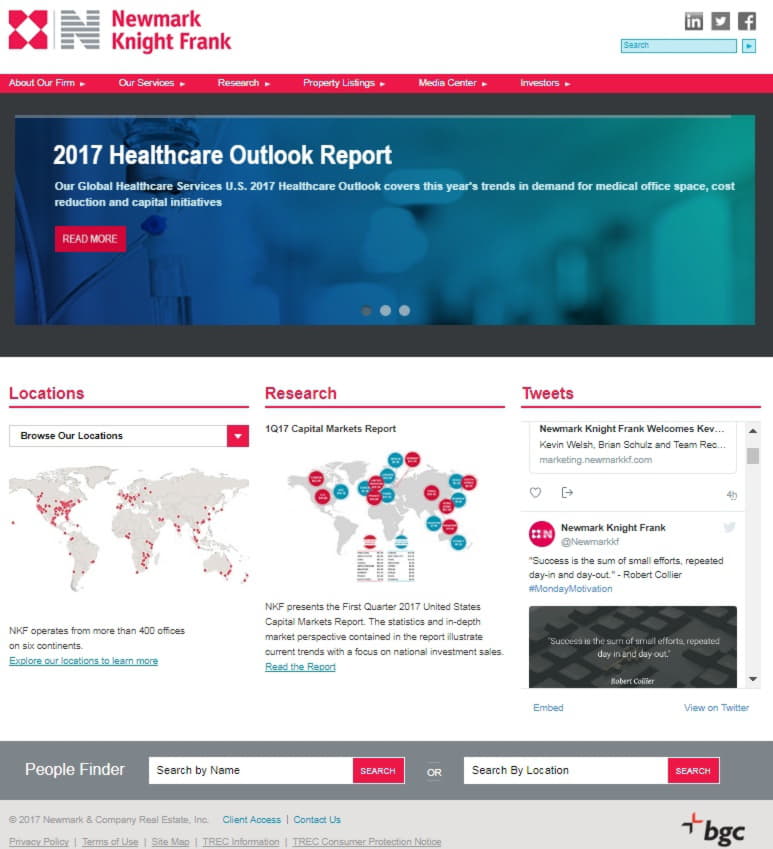
Brian Wilbur Coyle
Click here for Part I & Part III
Continuing a long and rich legacy of commercial real estate development
Brian Coyle is the president and CEO of the Henderson Group, a commercial real estate development company based in Media, Pennsylvania. Founded nearly 100 years ago, the company has earned a reputation as a go-to partner for businesses seeking workplace solutions and commercial property in the Greater Philadelphia region and beyond. The Henderson Group currently owns and operates a portfolio of 3.5 million square feet of commercial real estate, as well as 50 acres of developable land.
EDWIN WARFIELD: How would you characterize the commercial real estate industry today? How has the Henderson portfolio changed over the years?
BRIAN COYLE: I would say that certainly today the market appears to favor central business district office buildings—office towers—over suburban office. Suburban office today has this tinge to it that almost suggests something wrong with it, and people are questioning the future of suburban office especially in the context of all of the rich amenities that office towers in central business districts are able to provide. It’s very difficult in a 70,000 square foot office building to provide a cafeteria, a fitness center, and all the other amenities that millennials, Gen Xers, and baby boomers are all expecting in the marketplace today, without having to charge an exorbitant rent to provide those facilities.
So, I think—and our strategy always points toward—acquiring property in strong locations, typically at the intersection of some major type of transportation infrastructure, that the location itself will provide the amenities that users are looking for. For instance, in our Chadds Ford portfolio in the 1980s we developed AMC Theatre anchored shopping center at the intersection of US Route 1 and US Route 202. Within the past two years, a Wegmans-anchored shopping centre has opened up, catty-corner to that same shopping center. If we were a retail developer, I might be worried about the competition that the Wegmans-anchored shopping center will bring to our existing shopping center, but viewing the shopping center that we built as an amenity to our 600,000 square feet of office space, and the thousands of employees that occupy our office park, I welcome the Wegmans shopping center as another amenity to the base and another marketing tool that we can employ to attract users to our office space. What makes it even better is the town has developed a loop road system that now allows users of office space in our park to simply drive on to the loop road and access all of those retail amenities without ever having to go out onto the busy major highways of US Route 1 or US Route 202. So, I think suburban office will continue to be a strong player, provided that those assets are in great locations that, on their own, may not provide the amenities that people are looking for, but the location in itself has the amenities that everyone is looking for.
The industrial market—if we just attempted to bifurcate it for a moment—between large scale users of industrial space, like an Amazon Warehouse and Distribution Center—200,000, 400,000, million square foot warehouse facility—is a very different model, obviously, than the types of buildings that we’re involved in the ownership and operation of. The majority of our flex warehouse space—the typical user’s between 5,000 and 25,000 square foot of space; they may occupy between 10% and 25% office, with the balance being all warehouse. To a certain extent, that business has not really latched on to the amenities that office users are looking for. Generally speaking, the office component of that business, whether it’s an air freight forwarding company, a manufacturing company, some other local service—if it’s a plumbing supply company—those people are really looking to operate their own business within their space, with the least amount of outside interference possible. So, we haven’t really seen a major shift there in tenant demand for amenities. Certainly, I think if we were operating those buildings more as one-story office buildings within our portfolio, we would be seeing very similar demands from the tenant bases as what we see in our suburban office portfolio.
Connect with Brian on LinkedIn
Sponsored by:
ABOUT NEWMARK KNIGHT FRANK
Newmark Knight Frank (NKF) is one of the world's leading commercial real estate advisory firms. Together with London-based partner Knight Frank and independently-owned offices, NKF's 15,000 professionals operate from more than 400 offices in established and emerging property markets on six continents.
With roots dating back to 1929, NKF's strong foundation makes it one of the most trusted names in commercial real estate. NKF's full-service platform comprises BGC's real estate services segment, offering commercial real estate tenants, landlords, investors and developers a wide range of services including leasing; capital markets services, including investment sales, debt placement, appraisal, and valuation services; commercial mortgage brokerage services; as well as corporate advisory services, consulting, project and development management, and property and corporate facilities management services. For further information, visit www.ngkf.com.
NKF is a part of BGC Partners, Inc., a leading global brokerage company servicing the financial and real estate markets. BGC's common stock trades on the NASDAQ Global Select Market under the ticker symbol (NASDAQ: BGCP). BGC also has an outstanding bond issuance of Senior Notes due June 15, 2042, which trade on the New York Stock Exchange under the symbol (NYSE: BGCA). BGC Partners is led by Chairman and Chief Executive Officer Howard W. Lutnick. For more information, please visit www.bgcpartners.com.


Edwin Warfield, CEO of citybizlist, conducts the CEO Interviews.
If you're interested in reaching CEOs, please contact edwin.warfield@citybuzz.co
Connect on LinkedIn
















